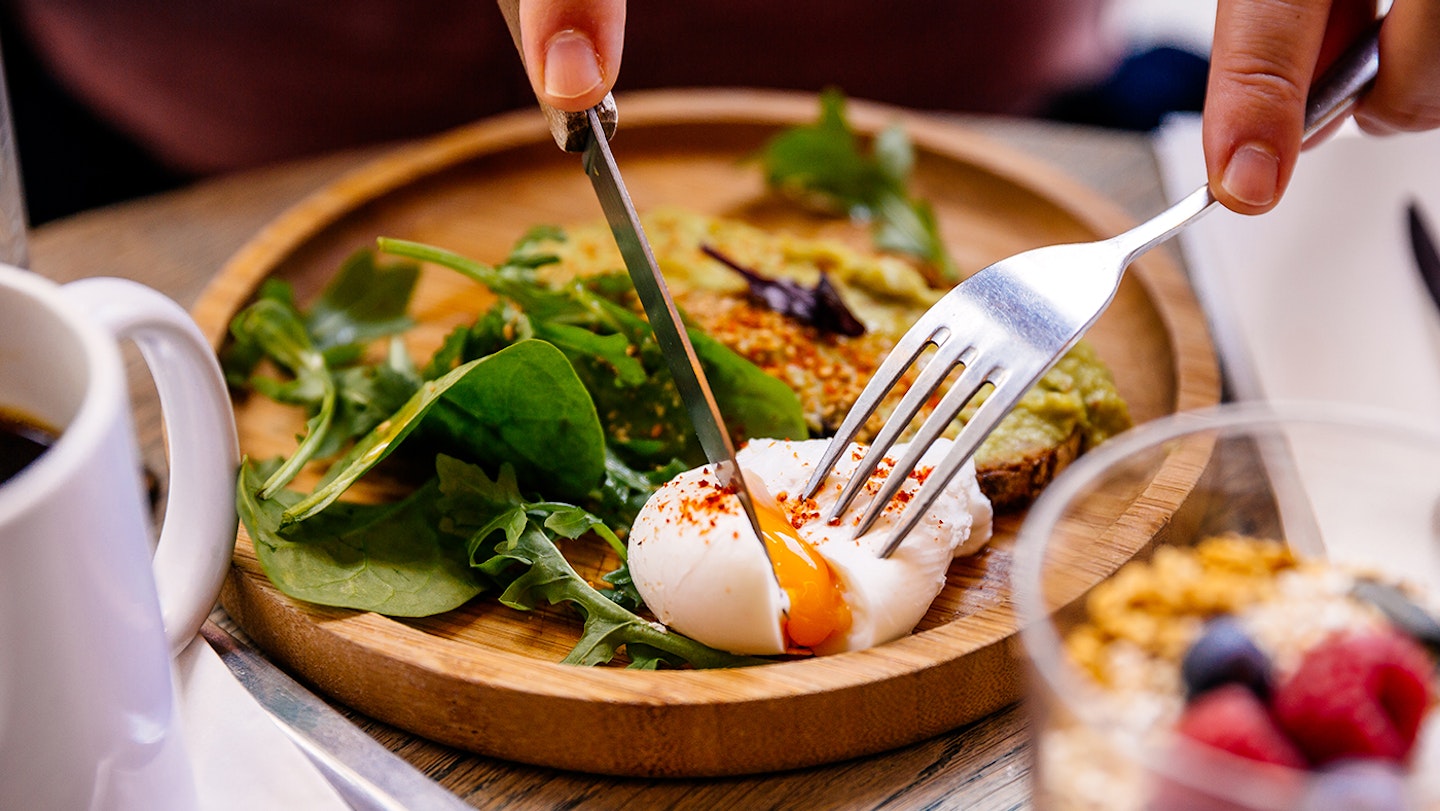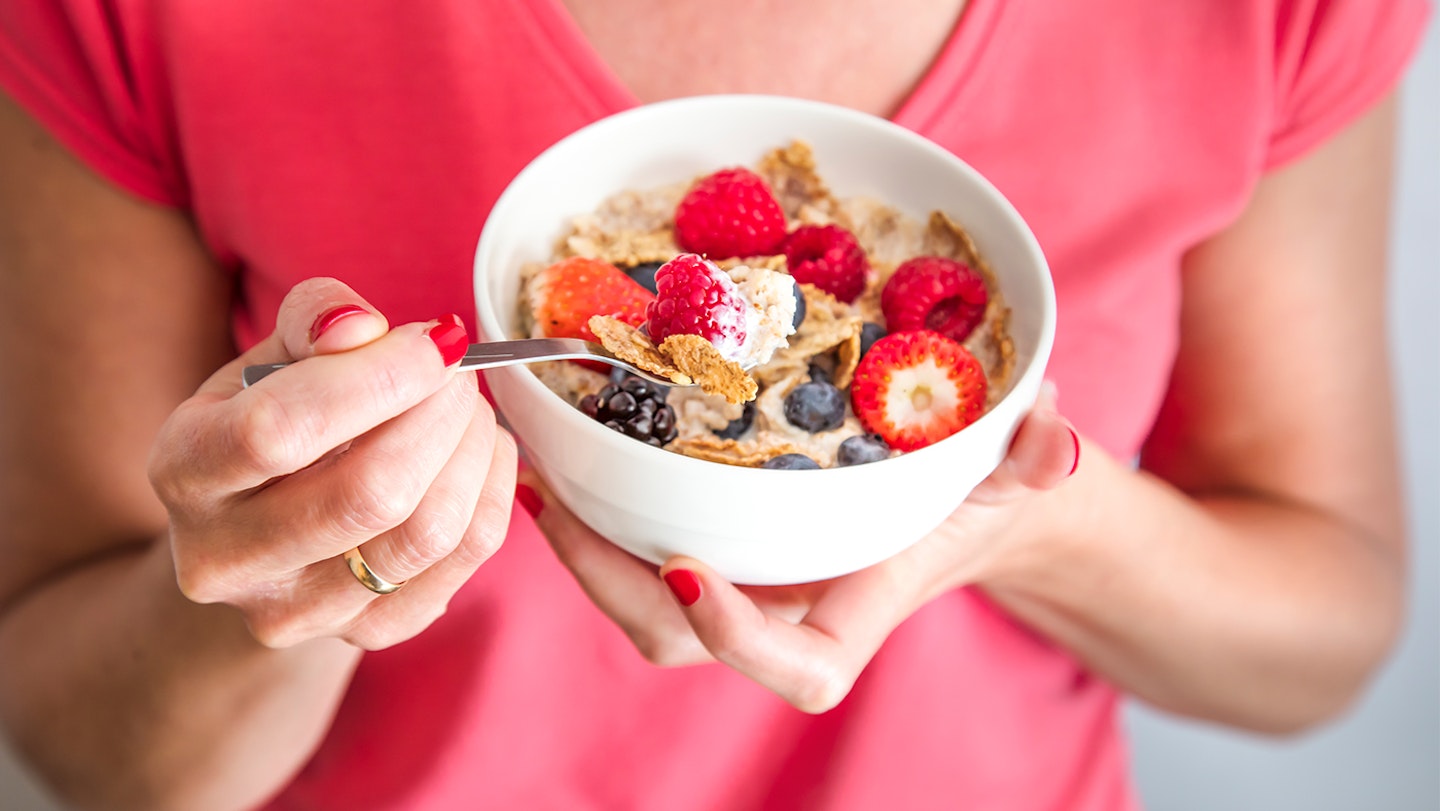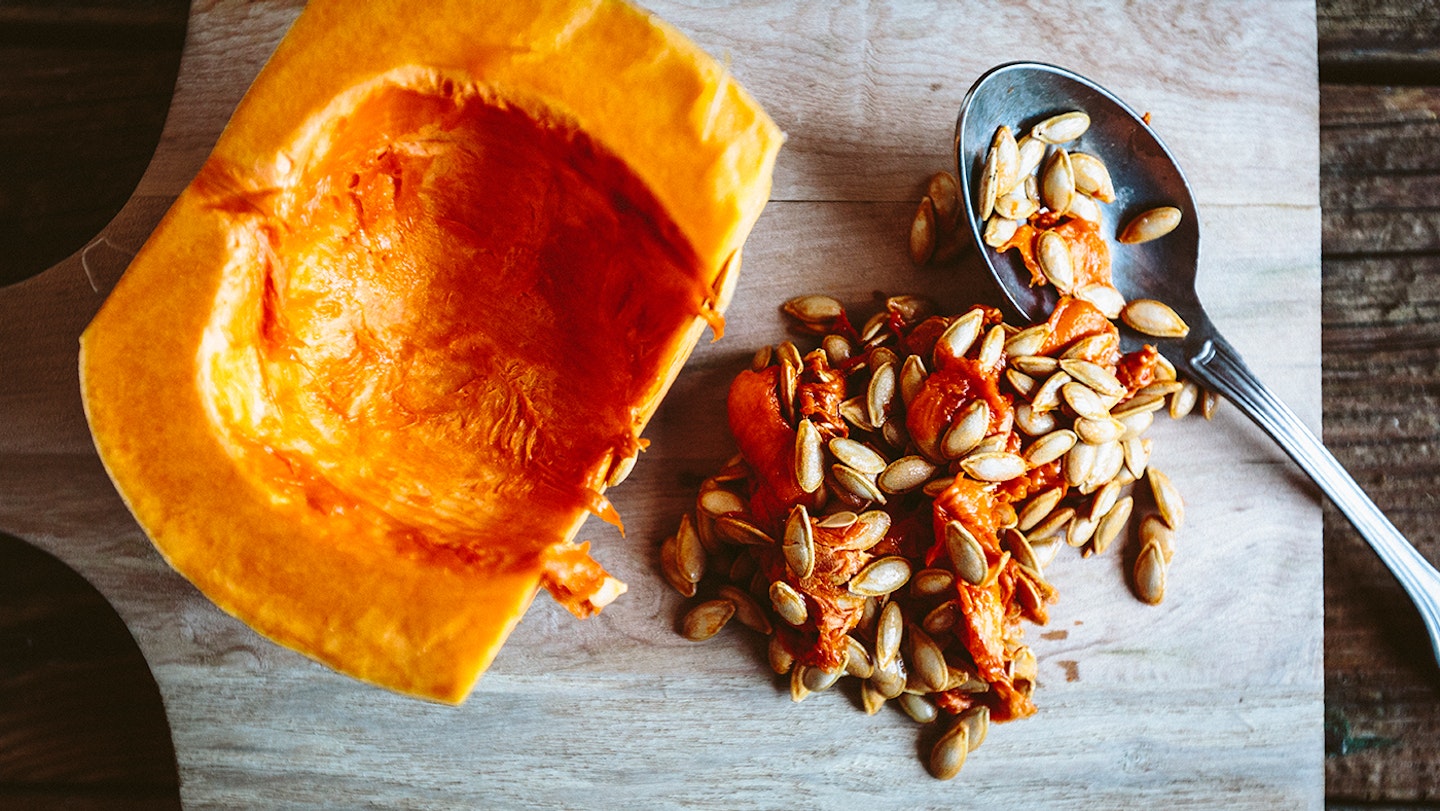If you've noticed your hair thinning, you may be on the lookout for the best hair growth products and foods for hair growth. Stress, diet, hormones or even age can wreak havoc on our hair, which in turn can lead to hair loss, thinning and split ends.
To determine the best foods for hair growth and hair health, it's helpful to know which vitamins and nutrients are important for the hair growth process. For example, consuming foods high in vitamin C, E, D, biotin, and zinc all play a role in hair growth.
"Making some simple changes to your diet can be a simple and effective way to boost hair health and subsequent growth. Quite simply, you need to feed your hair from within to make your hair grow faster and thicker and ensure you have thick, luscious locks," explains Kathryn Danzey, Health Coach and founder of British supplement brand Rejuvenated.
"For starters, the potent antioxidants vitamins A, C, and vitamin E are crucial. Biotin, a B-complex vitamin, as well as manganese, selenium and fatty acids such as Omega-3s, can make a difference too."
While you can get these vitamins from hair growth supplements, there are also plenty of foods you can eat that can give your hair back its bounce.
Foods for hair growth
A healthy diet can help your hair stay strong and shiny. What you eat can also keep you from losing your locks. If you're not getting certain nutrients from food, you might see the effects in your hair. Essential fatty acids, especially omega-3s, play a key role in the health of your skin, hair, and nails.
Here are the foods for hair growth that you should be eating to regrow your thinning hair...
Protein
Protein is vital for healthy hair. As hair is made of protein, ensuring you have enough protein in your diet is crucial for making hair strong and healthy. If you are not consuming enough protein in your diet, your hair is likely to become dry, brittle and weak. Extremely low protein diets may result in restricted hair growth and even hair loss.
Pile your plates high with protein such as chicken, fish, chickpeas, and lentils. If you’re worried, you’re still not getting enough, then try incorporating a protein powder into your diet.
Eggs
Along with protein, eggs are filled with powerful vitamins and minerals. Specifically, eggs are rich in biotin and other B-complex vitamins, which strengthen the roots of your hair to help reduce hair loss. These nutrients also work to stimulate new hair growth, thickening your hair and giving it more volume.
As well as eating eggs, applying a homemade hair mask which includes raw eggs is also beneficial to your hair! Egg yolk is rich in proteins and certain fats, which keep your scalp and hair nourished from its very roots. If your scalp is dry it causes itching and flaking, resulting in dandruff. This is why often an egg mask for dandruff is a good choice.
And because hair is 80% protein, applying protein-rich eggs to hair can help replenish the protein lost through styling, making hair stronger and better able to stand up to heat.

Vitamin A
Vitamin A is a fat-soluble vitamin which helps to fight inflammation, promote tissue repair, strengthen bones as well as support hair and skin health. The body's cells require a sufficient stock of Vitamin A in order to grow. This of course includes the skin cells that form hair follicles. Vitamin A helps the skin produce an oil called sebum which is the substance that keeps the scalp moisturized and healthy, allowing hair to grow.
Try adding the following foods into your diet, each of which is jam-packed with this powerful antioxidant: sweet potato, kale, dried apricots, butternut squash, spinach and broccoli.
Vitamin C
Vitamin C helps to build collagen and also acts as a powerful antioxidant to fight free radicals. Vitamin C also helps our bodies to absorb more iron, which in turn helps to keep locks strong and healthy. Vitamin C can improve hair growth, fight dandruff, stop hair loss, and lead to thicker hair, while a deficiency can cause split ends.
Foods high in vitamin C include red peppers, citrus fruits, kiwi fruits and berries.

Vitamin E
Vitamin E is another natural antioxidant which boosts collagen production and also helps the body to fight inflammation. Vitamin E has been shown to increase capillary circulation in the scalp, thereby helping to increase hair growth.
Try snacking on Vitamin E-rich almonds, which are rich in amino acids needed for collagen growth, as well as calcium, which we need for strong hair. Avocados are another excellent source of Vitamin E. In fact, one medium avocado provides 21 per cent of your daily vitamin E requirements. Like vitamin C, vitamin E is an antioxidant that helps combat oxidative stress by combatting free radicals.
Pumpkin Seeds
Pumpkin seeds are one of the most nutritious snacks you can eat – and they are a well-known beauty booster! They’re rich in protein, iron, magnesium, potassium, and biotin; all of which are needed for luscious locks.
Pumpkin seeds also contain cucurbitacin (an amino acid with antimicrobial and anti-inflammation properties). This can benefit those suffering from hair and scalp issues such as dandruff. Pumpkin seeds are also rich in vitamin C, promoting hair growth and health.
As well as the seeds, pumpkin oil also benefits those struggling with hair loss. Several studies have found that pumpkin seed oil appears to reduce the severity of male pattern baldness and, in some cases, show potential for hair growth.
Since hormone levels play a role in hair loss, increased DHT (dihydrotestosterone) activity at your hair follicles is partly responsible for hair loss, in addition to other factors, including genetic ones. High levels of DHT can shrink your hair follicles and shorten the hair growth cycle, resulting in hair loss. Pumpkin seed oil has been scientifically proven to help block the enzyme which converts testosterone to DHT, which is why it makes a real difference when it comes to preventing and treating hair loss.

Collagen
As a naturally occurring protein, collagen is essential when it comes to hair health. Specific types of collagen i.e. marine collagen, are rich in proline which forms the key building blocks for keratin aka healthy hair.
Try adding chicken, egg whites, nuts and beans to your diet; all of these can help to boost collagen levels from within. Alternatively, try a collagen supplement that contains 10,000mg of hydrolysed marine collagen. Taking collagen supplements can help boost hair growth, by providing your body with essential amino acids that it can't produce on its own and producing peptides that signal rejuvenation and repair.
It doesn't take long to see the results from collagen, tangible results for skin, hair and nails can be seen in as soon as four weeks. And with consistent, daily supplementation, the best results are achieved from 12 weeks.
Omega-3
Essential fatty acids, such as Omega-3 are an essential food for hair growth to help to nurture and nourish your hair. Foods rich in omega-3s include pumpkin seeds, chia seeds and salmon.
If you want to boost your intake of Omega-3 with a supplement the recommended dose to reap the benefits is 600 mg of [omega-3s] per day. However, as you should do before starting any supplements, consult your doctor first, particularly if you have a history of mood disorders, fish allergies, diabetes, or high blood pressure, or are taking any existing medications.
Spinach
This leafy green vegetable is well known for its health benefits but it’s also full of iron which is beneficial for healthy hair. Iron helps red blood cells carry oxygen throughout the body to promote growth and repair. Spinach is an essential food for preventing hair loss because it is high in vitamins and nutrients such as folate, iron, vitamin A, and vitamin C, all of which are necessary for hair growth.
Consuming vegetables in general is an excellent way to promote hair growth as it helps with hair strengthening and improves overall hair health. Other vegetables that can positively promote hair health include onions, carrots, garlic, tomatoes, beetroots, sweet potatoes, french beans, orange veggies, green chillies, and leafy greens.
Calcium
Having enough calcium in your system is essential to having healthy hair. One of the main symptoms of a calcium deficiency is dry hair, which proves that calcium is needed in our bodies for our hair to be healthy. Calcium also helps the secretion of hormones that encourage new hair growth.
Adults need 1000mg of calcium daily and adults over 50 need 1200mg of calcium daily. Adults 50 and older need more calcium to prevent osteoporosis and other age-related conditions such as hair loss.
Milk contains proteins such as casein and whey that help strengthen and thicken hair. It is a rich source of calcium that promotes hair growth and prevents hair loss. Milk also contains Vitamin D which helps in the growth of new hair follicles.
Features & Reviews Editor Emily Gilbert has been a journalist since 2016 and has worked across a variety of specialist and lifestyle brands both in print and online. Specialising in product reviews, Emily is the first to know about all the exciting new releases, her favourite being gadgets for the home.

